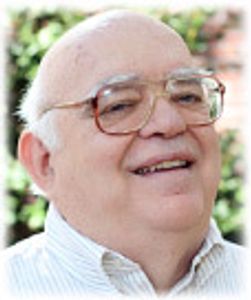
Thanks to internship stints in the non-profit world, students from Catawba College’s Ketner School of Business will have broader perspectives when they graduate.
;“Even if they don’t go to work for a non-profit, they’re more likely to volunteer because of their understanding,” explains Al Carter, an associate professor emeritus of business at the College.
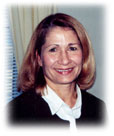 ;
;
Pam Thompson, an associate professor of information systems at Catawba, agrees and notes that Carter’s sentiment is one shared by her and other professorial colleagues in the School of Business. The sentiment is so strong that most professors there require volunteering or non-profit internships as an integral part of their coursework.
Students of Catawba College Management Professor Dr. Andrew Morris are regular volunteers on local Habitat for Humanity projects, and were instrumental recently in helping complete a house on Celebration Drive in Salisbury.
Thompson’s students have also worked to write grants, and to obtain and install computer systems which are now used by the clients at the two local Abundant Living Centers. Last fall, one of her students worked to create a computer backup system for the local Hanford Dole chapter of the American Red Cross.
Student efforts such as these have been so successful that Thompson is in the process of creating a Non-Profit Technical Assistance Center (NPTAC) on campus which will pair students with area non-profits that need technical or computer assistance at their agencies.
Hard at Work at Rowan Information and Referral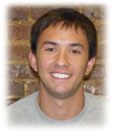 ;
;
Senior Kyle McAleese of Stafford, Va. is double majoring in marketing and Spanish and completing a spring internship with Rowan Information and Referral (a United Way agency). He notes that his experience working at this non-profit “has really opened my eyes to the needs of the community.”
Speaking as a student in the Ketner School of Business McAleese says, “We all have huge dreams of working for a large corporation and making millions and millions. But,” he quickly adds, “I guess I’ve been pretty oblivious to people at the lower end of the economic scale who need rides to the doctor, or can’t afford to get a prescription filled, or can’t pay their rent, or who need food and their food stamps haven’t arrived yet. My internship has definitely been a learning experience.”
 ;
;
McAleese’s classmate and fellow intern at Rowan Information and Referral, Kristen Zweizig agrees. This senior business administration major from Fleetwood, Pa. has focused her energy at that non-profit on writing grants to fund various needs of the agency. “It surprised me that they (the agency) could run on $100,000 (a year) for how many referrals they had,” she says.
Zweizig recalls two particular incidents at the agency which she dubs “eye-openers.” “We had to decide what type of ink to buy for the printers, either the generic Staples brand or the name brand, because we were watching our budget,” she says. “Then we went on E-bay and bought our network backup system for $90 compared to $300 at a retailer. And, the one we bought on E-bay was brand new in the box.
“To put $300 toward one item when you can get it cheaper somewhere else, I don’t see the sense of that.”
“We’re finding ways to be frugal,” McAleese explains after hearing Zweizig share her stories about the agency’s computer issues. During his internship there, he says, he has learned the basics about non-profits – their funding, budgeting, and how they work with the United Way, the City of Salisbury and Rowan County to obtain funding.
“It’s different seeing how our financial situation is affected by grant-writing and fundraising by board members, as opposed to for-profit companies where technology is up to date and where you need the best to keep up with the competition,” Zweizig adds. “Here (at Rowan Information and Referral) there’s no competition, we’re just out to help people.”
Rowan Information and Referral is without an executive director at present since Suzanne Storch resigned her position for employment at another organization. In the interim, Betty Young, information specialist of the agency and currently its only paid employee. McAleese, Zweizig, and another Catawba student completing his internship there, senior Blair Matthews of Wilkesboro, are pitching in to keep the agency running smoothly.
McAleese is working with Zweizig to complete a grant seeking funding for a Hispanic information position, a position the agency once had, but which was cut due to funding restrictions. He says he sees a need for such a person at the agency, noting that according to 2000 U.S. Census data, there were over 5,000 Hispanics in Salisbury.
McAleese and Zweizig also help produce agency brochures, using their skills on the computer to complete graphic design in-house and thereby save funds. Matthews, an accounting and finance major, is working on next year’s budget and completing allocation paperwork for next year’s United Way funding cycle.
“A lot more people should know about the agency than do, but it’s both a funding and awareness issue,” Zweizig concludes with a smile and a newfound knowledge that seems to contradict her youth.
Knowing with the Mind, Seeing with the Heart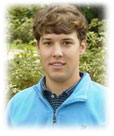 ;
;
Blair Matthews is in the home stretch of his college days. When he graduates next month, he will be doing so with an enriched perspective. Thanks to his professors and to their classes which have steered him to community service, he knows both sides of the non- and for-profit equation.
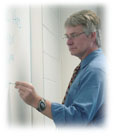 ;
;
When a class with Dr. Andrew Morris led to his work on a Habitat for Humanity project, Matthews was at first shocked that a professor would require that of him. Later, his shock changed to satisfaction. “After I went to work on the project, I found I felt better after doing it and I came to realize that there’s more to be learned than just in the classroom.
“It was kind of gratifying to know that these projects give the Habitat families the opportunity to help themselves.”
About his professors in the Ketner School of Business who insisted Matthews go the extra mile with his community service work outside the classroom, he now says, “They taught me not what to think, but how to think, a way to think, rather than a context to think within.”
